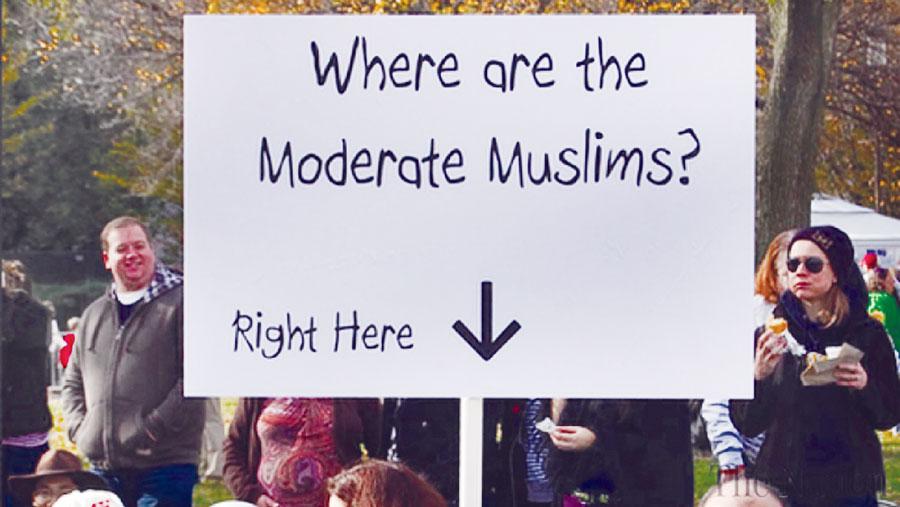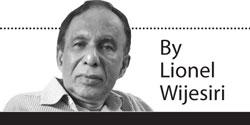Reply To:
Name - Reply Comment

 As a world religion, Islam is facing a major identity crisis today. Islamic extremism (or militancy) is damaging and endangering the place of Islam and Muslims in the world. According to the Global Terrorism Index 2018, compiled by the Institute for Economics and Peace (IEP), 18,814 deaths were caused by terrorists around the world last year and well over half were due to the actions of just four Islamic terrorist groups: Islamic State (IS), the Taliban, Al-Shabaab and Boko Haram.
As a world religion, Islam is facing a major identity crisis today. Islamic extremism (or militancy) is damaging and endangering the place of Islam and Muslims in the world. According to the Global Terrorism Index 2018, compiled by the Institute for Economics and Peace (IEP), 18,814 deaths were caused by terrorists around the world last year and well over half were due to the actions of just four Islamic terrorist groups: Islamic State (IS), the Taliban, Al-Shabaab and Boko Haram.
Another report dated September 13, 2018, tracking the roots, found 121 violent Islamist extremist groups that share elements from a common ideology were now operating worldwide.
Most political analysts believe that if militant Islam were the problem, moderate Islam is the solution. They believe “moderate Muslims” all over the world must speak out more to condemn jihadist ideology and issue fatwas against extremism.
There is a valid point in that argument but there is also a basic problem of defining who a “moderate” Muslim is.
However, some academics consider the “moderate” Muslim label offensive. They believe it implies ordinary Islam is not inherently peaceful. Some others believe it implies “moderate” Muslims are not “genuine” Muslims.
The trickiest balance is over how to counter the radicalisation of Muslims, whether face-to-face, online or in prisons
Since President Trump attempted to ban Muslims from certain countries from entering the United States, this question which Muslims are ‘moderate Muslims’ and which are potential ‘radical Islamist terrorists’ has gained new relevance. Some Muslim leaders deny any connection between their religion and terrorism but it cannot be denied that many terrorists claim to act in the name of Islam.
Categories
The International Centre for Counter-Terrorism of the Hague (ICCT) in its research work classifies Muslims into four: Jihadist Muslims, Islamist Muslims, Conservative Muslims and Pluralist Muslims. To obtain a near-perfect picture, the focus should be on the role of moderation in Islam itself and not on Muslims.
Jihadist Muslims are in the innermost circle and are the revolutionary and often terrorists, predominantly Sunni Salafist group. Those belonging to this group want to impose their interpretation of Islam on all others by threat or use of force in order to achieve their submission and conversion.
Islamist Muslims are the second but much larger circle. They may not practise violence themselves but adhere to the same ideology as jihadists. They too want to spread and impose Islamic law to make Islam rule supreme. However, they first seek to reach their goal by political representation. If it fails, they are prepared to move to coercion. Only for practical and pragmatic reasons, they opt for coexistence with other religious parties.
Most political analysts believe that if militant Islam were the problem, moderate Islam is the solution
Conservative Muslims are in the third circle. They are bigger than the second. They consist of ‘religiously conservative’ Muslims. These ‘conservatives’ form the majority of Muslims in countries like Egypt, Pakistan, Indonesia, Malaysia and the Gulf states. They are also called ‘traditional Muslims.’ They regard the words of the Quran as the word of Allah that has to be followed to the letter at all times and in all places. They are not revolutionary and do not believe in it.
Pluralist Muslims are in the fourth circle. They are non-traditional Muslims, most of whom live in countries where Muslims are a minority, especially those living in the West. They adhere to a broader interpretation of what it means to be Islamic and are inclusivists rather than exclusivists regarding the expressions of their faith.
And there is another recently-developed group known as ‘Progressive Muslims.’ A progressive Muslim is one who is firmly grounded in the Quranic values of truth, justice, compassion, wisdom. A progressive Muslim does not believe in sectarian Islam (Sunni or Shiite or Salafi) but rises above all these sects and gives importance to the Quran above everything else.
A progressive Islam not only does not adopt a sectarian approach but is respectful of entire humanity and human dignity as per Quran. He leaves mutual differences, ideological and theological to Allah alone and does not condemn anyone who differs from him/her. A progressive Muslim uses, as per the Quran, wisdom and goodly word in discussion and leaves rest to Allah. He does not try to be judgmental.
Which one fits?
Out of these five types, who really is a “moderate” Muslim?
Akeel Bilgrami is an Indian philosopher of language and mind. He has a PhD from the University of Chicago. Talking about this segmentation, he offers a simple answer: ‘Moderates’ are committed to secularism while ‘absolutists’ are committed to ‘Sharia’.
Akeel Bilgrami says: ‘Moderates’ are committed to secularism while ‘absolutists’ are committed to ‘Sharia’
Progressive Muslims
Bilgrami’s simple solution warrants further study. In the opinion of this writer, the new comer – progressive Muslim fits the slot on commitment to secularism. It is a safe bet.
In USA, for instance, progressive Muslims consist of scholars to grassroots organisations to everyday practitioners, and are getting larger and larger. They are challenging traditional understandings of what makes one an ‘authentic’ Muslim. While progressive Muslims agree on the need to encourage ‘moderate’ Muslims, they disagree on whether to use ideological labels like ‘moderate,’ ‘progressive’ or ‘conservative’ at all.
They have successfully reintroduced issues of human rights into the Muslim community, but disagree on how to engage in discussion with fellow Muslims on religious matters.
They have independent groups such as the Progressive Muslim Union (PMU) and Muslims for Progressive Values (MPV) affiliated to them. These groups are trying to organise and create fora for progressive Muslims. In an attempt to reach a broader Muslim audience, they regularly publish stories in national newspapers and Internet media outlets. They organise conferences and youth camps.
While most progressives agree there is a need to provide this sort of space, some disagreement exists in the community about the movement’s goals and strategies. They are still discussing on how to engage traditional Muslims, the role of the media in the movement, and whether to focus on socio-political or religious reform. The most optimistic of the progressives see the movement as having the potential to achieve both kinds of change simultaneously before the end of this year.
Progressive Islam had made its presence in European countries too. Reports indicate that it is well accepted particularly by the intellectuals and the youth. With all these changes, Islam in the West is undergoing a little-noticed transformation. A natural process of adaptation and assimilation is doing more than any government to tame the threat posed by Islamic extremism.
Today’s young Muslim generation has come of age. They are more enfranchised and confident than the older generations. Most of them have nothing to do with violent jihadist propaganda. Instead, for them, faith is increasingly becoming a matter of personal choice. Their beliefs range from ultra-conservative to path-breaking liberalism.
Transition
We can make it happen in Sri Lanka too. The government needs to encourage this transition by focusing on upholding the law rather than try to force Muslims to change their beliefs. Attacks not only threaten lives and property, they also set back relations between Muslims and those around them. That is why criminality must be dealt with firmly by the law and the intelligence services.
Any top-down nannying of religion risks a backlash. Heavy-handed interference will alienate communities whose cooperation is needed to identify potential terrorists and abusers among them. Put on the defensive, Muslims will deepen communal identities and retreat into the very segregation that intervention is supposed to reverse.
Rather than intervene in doctrine, it is better to deal with social conservatism through argument and persuasion. That can make for testy debate.
The trickiest balance is over how to counter the radicalisation of Muslims, whether face-to-face, online or in prisons. This is where the role of “moderate” (whether conservatives or progressives or others) come into play. They have to up its own programme to steer young people away from radicalisation, along with the government’s counter-terrorism strategy.
The response to this threat should come from the grassroots and with mosques at the heart of the programme. The best way to tackle violent extremists is to demonstrate that Sri Lankan Muslims are part and parcel of Sri Lankan life. At the moment, there is widespread concern that Muslims are singled out as potential extremists. That feeling needs to go away.
All of us should realise that unless we, along with the “moderate” Muslims, fully engage in the battle of ideas and tackle extremists’ totalitarian thinking, recognising that these groups are bound by a transnational religious-political ideology, the violence will continue to spread throughout the country.